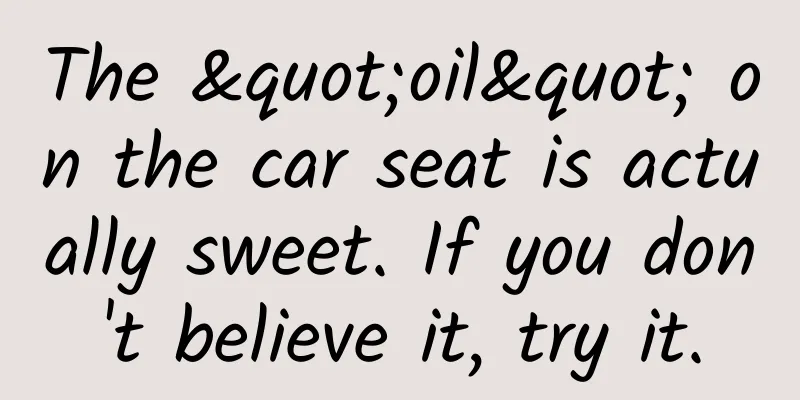Google to release Android Pay

|
Editor’s Note: Google launched a similar payment application in the early years - Google Wallet. Although it failed in the gestational stage, its mobile ambitions have not died. After Apple iPhone 6 successfully formed a closed payment loop by adding NFC, Google claimed that it would not give up Google Wallet, but now it has launched Android Pay, which shows its determination. Indeed, no one can give up such a big piece of fat meat. It remains to be seen whether many Android users can compete with Apple. According to ArsTechnica, Google will release a new payment API - Android Pay at the I/O conference to be held at the end of May this year. It will provide third-party applications with offline in-store purchases and in-app purchase payment solutions, which are so convenient and fast that they can be completed with just one click. Android Pay uses the HCE (Host-based Card Emulation) mode, which allows third-party applications to fully utilize the NFC chip of Android phones. HCE is a new NFC feature introduced by Google when it released Android 4.4 in 2013. According to Ars Technica, Google's payment tool Google Wallet will continue to exist independently and will be supported by Android Pay. One of the benefits of Android Pay is that third-party applications that access this payment solution no longer need to go through Google Wallet. Although Google Wallet started early and was released in 2011, it has not made much progress in the mobile payment market. According to a 2013 comScore survey report, 43% of American consumers have heard of Google Wallet, but only 8% have used it. On the contrary, Apple Pay, which was released in September last year and officially put into use in October, has stirred up the mobile payment market. According to BusinessInsider data, in the second month of Apple Pay's launch, its share of the total transaction volume of the top five retailers in the United States increased from 0.1% to 1.6%. In addition, driven by Apple Pay, the number of mobile payments using Google Wallet has also increased. According to BI Intelligence, offline mobile payments will be a huge market. By 2019, the total amount of offline mobile payments will reach 818 billion US dollars, accounting for 15% of the total payment volume. As a pioneer in such a booming market, Google certainly does not want to see Apple Pay enjoying the dividends of rapid growth. Operators that were previously in fierce competition with Google have also begun to change their strategies. This Monday, Softcard, a mobile wallet application controlled by three operators, Verizon, AT&T and T-Mobile, announced that it would sell some technology and intellectual property to Google. And a few days later, today, Softcard announced its closure. At this time last year, Softcard still regarded Google as the biggest competitor in the market, and even did not allow the installation of Google Wallet on the devices sold by these three operators. However, the emergence of Apple Pay has changed this situation. In the future, Google Wallet will be pre-installed on the devices sold by the three operators. However, the market is not entirely optimistic about such a combination. A user with the ID "@胡方煜" on Weibo commented, "In order to avoid fighting alone, three fool companies jointly established a fool company. After four or five years of struggling, they found that there was no hope. The other fool company also struggled for four or five years and found that there was no hope. Then the two fool companies said maybe if the two of them get together, there would be hope. Haha, haha, haha..." TMT expert @高楼壁虎 in the payment field holds a more optimistic view. "Google can only implement mobile payments through Android, but functions such as NFC require mobile phone hardware support, so Google is not as convenient as Apple to directly act as a mobile phone OEM. In the early days, Google Wallet was also resisted by the three major operators in North America. Operators in the North American market can block it through terminal specifications, and can also support it through specifications. From the perspective of business expansion, Google has successfully turned the tide this time." However, no matter what, the entry of Apple Pay has started a new round of mobile payment wars. |
<<: Google, BlackBerry team up to make Android devices more secure
>>: What is the relationship between grabbing red envelopes and mobile phones?
Recommend
7 steps to completely dismantle live streaming sales
Live streaming sales are very popular. It's m...
How to protect coral reefs in today's oceans? - Lessons from corals that built reefs 330 million years ago
Produced by: Science Popularization China Author:...
Why did the world's only confirmed 8th-century Persian brocade appear in Qinghai, China?
Even in the Qinghai-Tibet Plateau, the "thir...
The million-dollar Douyin traffic strategy
In the past three years, I have managed the entir...
How to promote and attract traffic to the member points mini program?
The points app has always been a common marketing...
First confirmed! There is a "plunge zone" around a black hole | Technology Weekly
Compiled by Zhou Shuyi and Wang Xiang Crows can c...
Why does Apple want to punish Tencent? Written after the 5.5 earthquake at the Apple Store!
The App Store earthquake came and went quickly, j...
With 520,000 stores opening a day, how can brands achieve social fission?
Opening a coffee shop of your own is a dream that...
Shocked! H1N1 flu can also cause white lungs! These groups should not be careless
Recently, the news that a 9-year-old boy in Zheji...
Perfect Diary’s Methodology for Explosive Products
Brands such as Perfect Diary , Hua Xizi, and Cha ...
6 reasons for Android memory leaks
[[179035]] 1. Memory leak caused by resource obje...
In-depth case study: Accurately outline user portraits and build an efficient financial customer analysis system from 0 to 1
With the gradual entry of foreign banks into the ...
What is it like to have diabetes at an early age? Why do people get diabetes?
Follow "Body Code Decoding Bureau" (pub...
How to get "Apple Recommended" for a good game? There is a routine
It goes without saying that "Apple Recommend...
How to cultivate "user habits" like Didi: Every time you activate, your retention rate increases
For a good product, attracting users is only the ...
![Friends who have high private WeChat visits to Chengdu Tea Tasting are recommending [worth collecting]](/upload/images/67cc0edfd5888.webp)








